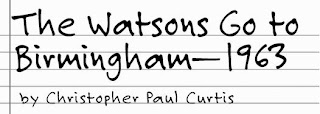I have found that the most successful activity I have implemented during student teaching thus far have been my Edgar Allan Poe Learning Stations. The following is how I structured my lessons:
1. In their journals, students created a KWL chart about Poe, filling in the "K" column (what they know). Then, as a class, we shared answers and filled in the "W" column (what they want to know). I have a computer and projector in my room so I was able to project this chart onto the board while we added to it.
2. Then, we read a short biography about Poe and filled in parts of the "L" column (what they learned about Poe).
3. Separating the students into six groups, I then presented an overview of each station to the students:
- "The Black Cat" station = theme
- "The Fall of the House of Usher" station = setting
- "The Raven" station = tone and mood
- "The Tell-Tale Heart" station = talking to the text (using reading strategies)
- "The Cask of Amontillado" station = characterization
- "The Pit and the Pendulum" station = plot development
The students would rotate every 25 minutes, and I think they really enjoyed moving around from station to station. This is only my second time experimenting with Learning Stations in the classroom, but the students seem to be responding to it well.
Stay tuned for more to come from the secondary ed English classroom!


